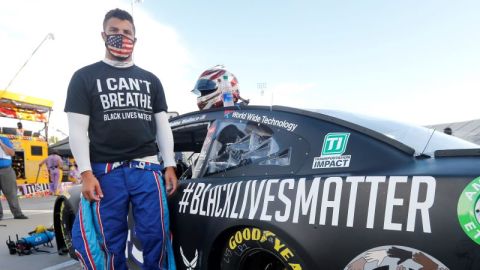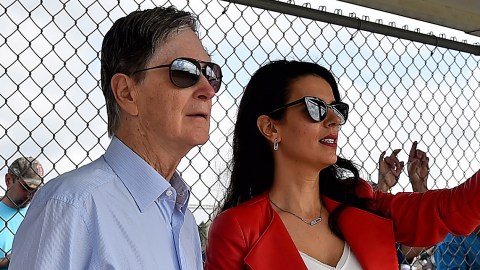 BOSTON — For someone whose teams played in a style that made him a darling of advanced metrics adherents, Stan Van Gundy doesn’t sound too fond of basketball analytics.
BOSTON — For someone whose teams played in a style that made him a darling of advanced metrics adherents, Stan Van Gundy doesn’t sound too fond of basketball analytics.
“There’s a lot of people in a lot of organizations who don’t know the game,” Van Gundy said. “All they know is analytics, and that’s used to supersede what guys like us see with our eyes. But there’s no substitute for watching the game over and over and over again.”
Van Gundy perfectly played his role of devil’s advocate at the MIT Sloan Sports Analytics Conference on Friday. As part of a distinguished NBA panel, he served as the resident agnostic of the advanced statistical movement, seated alongside former Toronto Raptors general manager Bryan Colangelo, Boston Celtics coach Brad Stevens, former Phoenix Suns president of basketball operations Steve Kerr and Celtics assistant GM Mike Zarren.
“I don’t trust most of it,” Van Gundy said, singling out the work done by ESPN Stats and Info in particular.
At an event meant to examine new ground in sports analytics, the rest of the panel didn’t entirely disagree with Van Gundy’s sentiment that analytics alone cannot substitute for watching a game. Colangelo acknowledged that demonstrating the effectiveness of such metrics to coaches and players was his biggest challenge as an executive, noting that “as great as the world is that is opened up by analytics, it can be very productive, but it can also be greatly destructive if not communicated in the right way.”
Stevens, who claims to be somewhat confused as to how he earned a reputation as an analytical coach, brings a nuanced appreciation for the newly accepted knowledge within the game. The approach espoused by many numbers-oriented observers are that shots at the rim, free throws and 3-pointers are far more efficient than shots anywhere else, and thus are more valuable.
Stevens agrees with those principles — as does Van Gundy — with a few caveats.
“Everybody’s trending toward that on offense,” Stevens said. “Meanwhile, everybody’s trending toward stopping that on defense. There’s another factor there (with the defense).”
“The big thing is to fit your personnel,” Van Gundy said. “That’s the one thing that’s sort of lost. Everybody’s gotten into generalizations that you need free throws and threes. That’s all well and good, but if you don’t have guys who can shoot threes, that doesn’t help you.”
Of course, Van Gundy isn’t as big a stats denier as he pretended. His 2009 Orlando Magic squad attempted the second-most threes and attempted the fourth-most free throws in the league while holding opponents to the second-worst 3-point percentage. In short, Van Gundy values numbers as a way to get a leg-up on opponents, just not as the final word.
Neither does Zarren, however, who is employed because of his way with metrics. But he didn’t insist his work was the only way to evaluate the game.
“People talk about our championship team in ’08,” Zarren said, referring to a squad that took more midrange jump shots than many analysts liked. “People here fell in love with the grind-it-out style of that team.”
Van Gundy’s blunt comments drew chuckles from the audience, but he and his fellow panelists hit on a crucial point. There’s a gray area to analytics, which experts understand and others — whether critics or adherents — often don’t. Analytics aren’t wrong. But they aren’t definitively right, either.
In a conversation that needed to be had, Van Gundy played the role of villain perfectly. The problem was, nobody else on stage played the hero, at least not to the extent that strict advanced stats adherents might like. Even Stevens, the reluctant statistician, doesn’t sound like someone who fully embraces analytics as much as he accepts them as the best he’s got at the moment.
“You’ve got to find what your best chance is for success,” Stevens said. “It might not be perfect. But over an 82-game season, on back-to-backs, on short turnarounds, you want to know what your best chance is.”
Have a question for Ben Watanabe? Send it to him via Twitter at @BenjeeBallgame or send it here.



